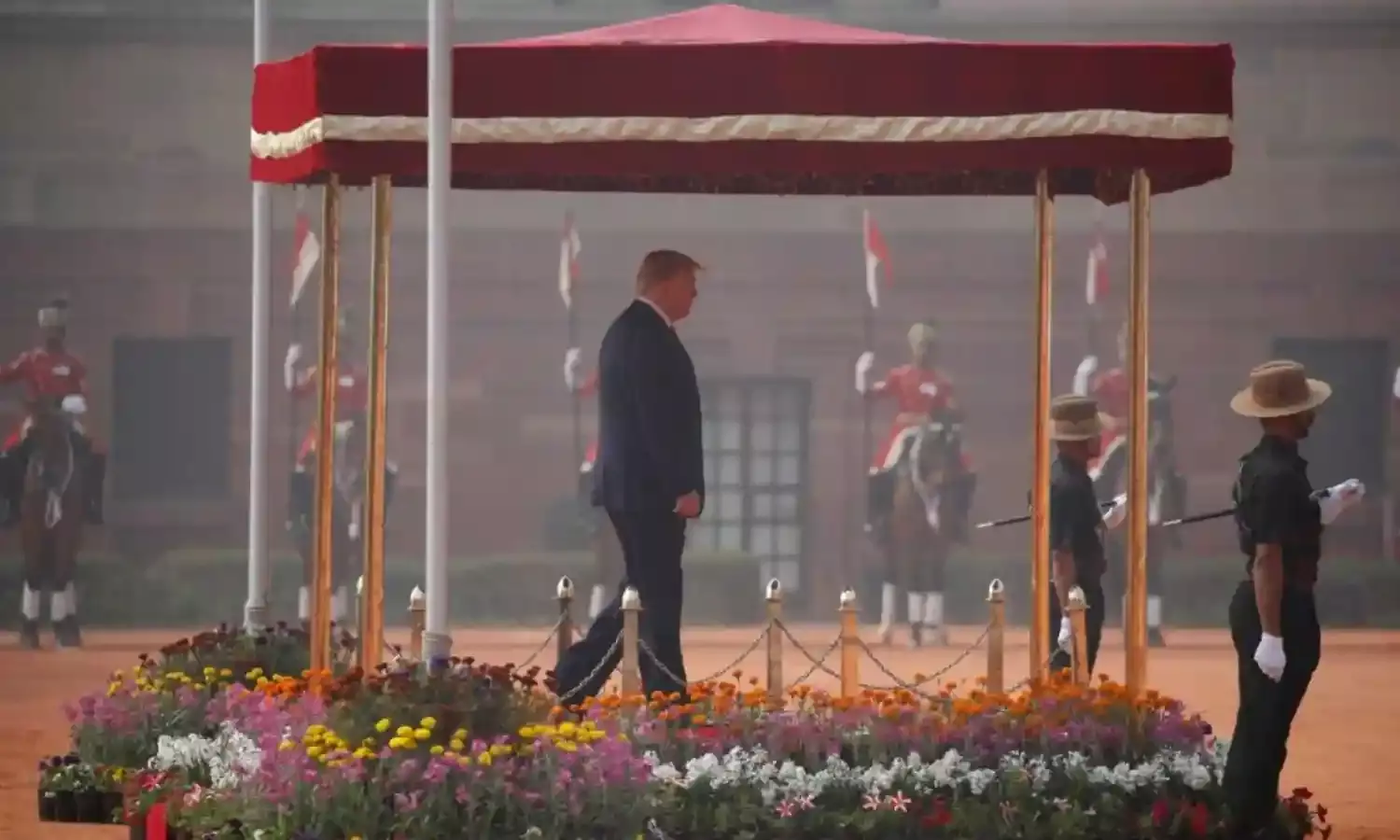Trump’s Trip to India Should Worry Brexiteers. Here's Why
Narendra Modi would not dream of offering Boris Johnson such a grand reception.
US President Donald Trump received the pomp and circumstance of a Maharaja during his official state visit to India. He received a street reception of seven million people.
The government erected billboards of the two premiers smiling together. The world’s largest cricket stadium was packed out. The streets had been cleared and the slums bricked in. Minus the elephants and glittering regalia, it’s not far off being a modern-day Durbar.
Narendra Modi would not dream of offering Boris Johnson such a grand reception.
The current prime minister would, however, be especially keen to relive the vice regal ceremony. He regularly invokes the glory of the British Empire to encourage support for Brexit. His best-loved predecessor is the arch-imperialist and India loathing Winston Churchill. Boris’s colonial-era views symbolise the arrogance of a bygone British Empire. He referred once to Africa’s “watermelon smiles” and “flag-waving piccaninnies”. The rallying cries for Empire 2.0 don’t endear Britain’s former colonies.
The premiers of India and the US both perceive China as the big threat. Britain, on the other hand, handed over much of the provision of its 5G network last month to Chinese-own company Huawei against the American’s advice. Diplomats reported that Boris faced the ‘apoplectic’ wrath of Trump on the phone. US Secretary of State Mike Pompeo arrived the following day to convey the President’s anger. It is unimaginable that the US President would ever give the Indian prime minister such a telling off.
Welcoming the most powerful man in the world offers a much-needed distraction from domestic troubles for Mr Modi. Boris would deploy the charm offensive he cultivated at Eton and Cambridge. The trouble is Indian diplomats don’t find the British charm anywhere near as persuasive as the Brits believe it to be. The only way the younger blonde bombshell could outmatch the older would be with his undiplomatic behaviour. As Foreign Secretary, Boris’s impromptu recital of British Raj-era poetry in Myanmar was so embarrassing that the UK ambassador intervened to stop him. Such a lack of tact should worry Brexiteers.
The US can offer lucrative bilateral trade deals. Trump can offer defence contracts and the resolution of trade disputes worth billions of dollars. Boris would arrive with his alms bowl in hand. Pundits would ask why India should hastily sign a post-Brexit trade deal with its seventeenth largest trade partner. There are still no conclusions in sight after thirteen years of trade negotiations between the EU and India. The US is India’s top trading partner, yet they still have a long way to go. The Brexiteers promised British voters the earth but they’re living on a different planet. Britain looks to India for a deal, India looks to the US. It is a sign of Britain’s diminishing stature on the world stage.
Donald Trump and Melania did the obligatory trip to the Taj Mahal at the end of their first day. Ivanka Trump had her Princess Diana moment sat in front of the so called “Monument of Love”. It is ironic that the President who banned Muslims from entering the US would be photoed in front of this universally admired Muslim masterpiece. Critics accuse both the Indian and the US leaders of marginalising their Muslim populations and being anti-Muslim - a charge both deny. It is yet another thing they have in common.
Boris Johnson is not a part of the Modi-Trump populist bromance. Both highly nationalistic, the premiers of the largest and most powerful democracies are natural political allies. But three is a crowd. The prime minister of the oldest democracy is the definite outsider. Boris Johnson’s Brexit project is not as radically right wing as Modi’s Hindutvaism or Trump’s America First. Modi and Trump share a nationalist agenda that is instinctively protectionist. Boris, on the other, is something of free marketer. His Brexit pipe dream of a Global Britain is farfetched in a world where Trump and Modi are probably here to stay.
Tom Wilkinson is a PhD candidate specialising in post-colonial India in the Department of International History at the London School of Economics.





